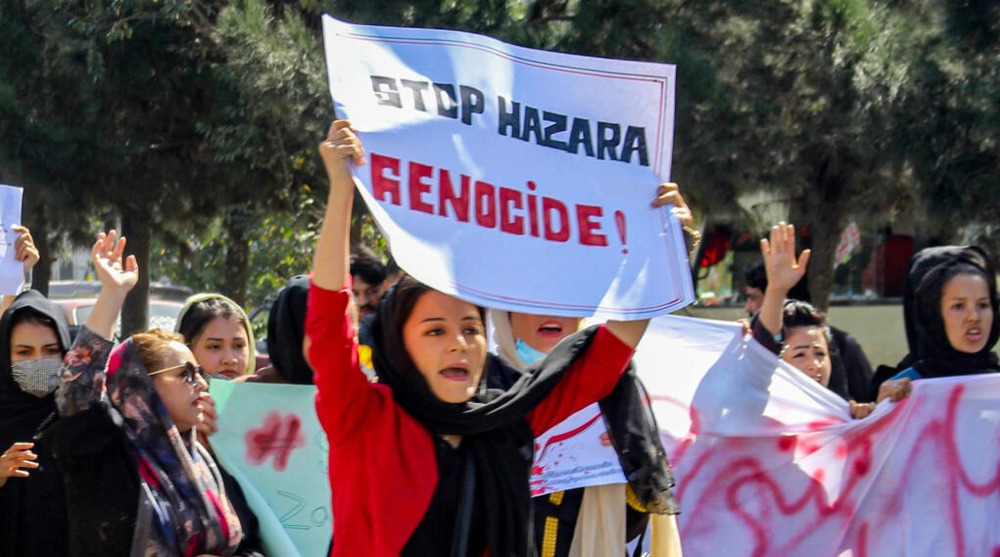Dozens of women from Afghanistan's minority Hazara community have held a protest following a suicide bombing that took place in an educational center and killed more than 20 young women.
On Friday morning, a suicide bomber blew himself up in the study hall of Kaj Education Center in Dasht-e-Barchi, a mainly Hazara neighborhood west of the Afghan capital Kabul.
The neighborhood is an area where most residents are Afghan Hazara Shiites, who have been the target of brutal suicide attacks by terrorist groups and Daesh in recent years.
According to the Afghan police, 20 people were killed in Friday's incident, but the United Nations has put the death toll at 24.
On Saturday, dozens of Afghan women gathered in front of a hospital in Dasht-e-Barchi where some of the injured and victims of the attack are hospitalized, chanting, “Stop Hazara genocide, it’s not a crime to be a Shiite”.
Daesh terrorist group claimed responsibility for the attack hours after the explosion in the center.
The Hazara community, the poorest of the country’s ethnic groups, accounts for about 22 percent of Afghanistan’s population. Its members have been targeted in several large-scale kidnappings and killings across Afghanistan in the past.
In May last year, at least 85 people – mainly girl students – were killed and about 300 wounded when three bombs exploded near their school in the Shia-dominated Dasht-e-Barchi neighborhood of Kabul.
In October 2020, Daesh admitted to attacking an educational center in the same area that killed 24 people, including students.
In May 2020, the group was blamed for a bloody attack on a maternity ward of a hospital in the same neighborhood that killed 25 people, including new mothers.
Daesh has a foothold in eastern and northern Afghanistan, particularly in Nangarhar, which is regarded as its base in the war-torn country. It has recently claimed responsibility for several attacks across Afghanistan.
AFP photo
/129
1 October 2022 - 10:35
News ID: 1309415

Dozens of women from Afghanistan's minority Hazara community have held a protest following a suicide bombing that took place in an educational center and killed more than 20 young women.
